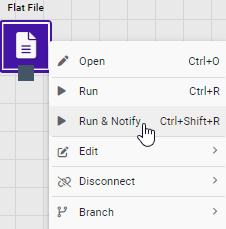Nodes can be configured by double-clicking them on the canvas.
Node Specific Settings
Depending on the type of node, node settings are different. Available node types are described in the Node Guide.
General Node Settings
All nodes, regardless of type, have common settings. Select a node on the canvas and double-click it, or right-click the node, to open a context-sensitive menu. Common settings appear on the "Properties" tab.
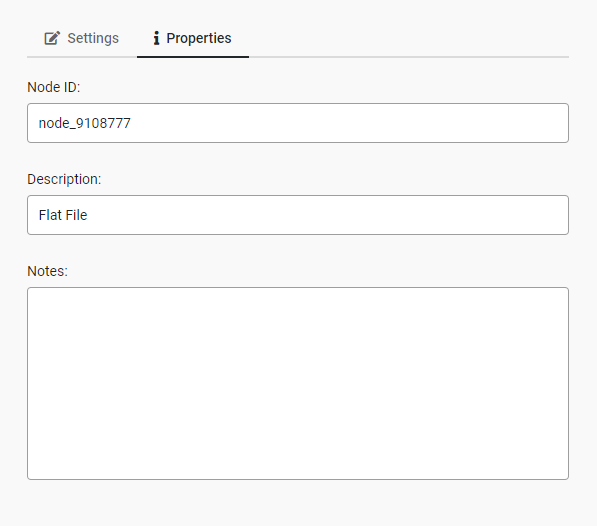
These settings include:
| Setting | Description |
|---|---|
Node ID |
A system-generated ID for the node which cannot be changed. |
Description |
A meaningful user-added description for the node. |
Notes |
User-added notes that can optionally be displayed below the node on the canvas. |
For the Source Database node, the Description and Notes can be entered as follows:
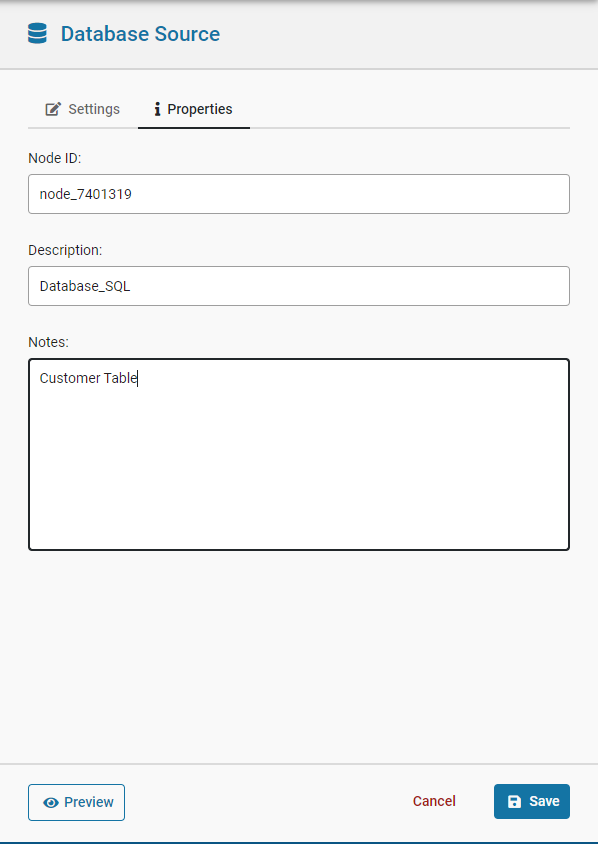
The node is updated visually to reflect these changes:

Click the Notes icon of the node or right-click and select the Context Sensitive Menu option to toggle Notes visibility on or off."
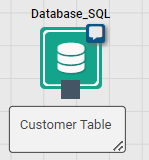
The web interface allows for the interactive execution of individual branches, as well as running an entire flow.
Interactive Execution of Nodes
When run interactively, the node runs immediately, and no other actions will be possible until the run completes.
Running a Node
Output and Export nodes are the only node types that can be run from within DataWORQ.
When a node is running, it processes in the background of DataWORQ, allowing the user to continue working.
To run a node, right-click on it, then select the Run option or the Ctrl + R hotkey combination.
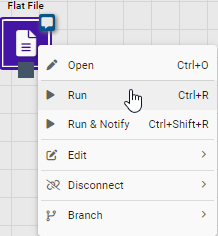
Run a Node with email notifications
Node runs can be configured to notify users about success or failure. This feature must first be set up via Email Alerting.
To run a Node with email notifications, right-click on it, then select the Run & Notify option or use the Ctrl + Shift + S hotkey combination.
